TL;DR
I turned 32 on March 22. To celebrate, I will move my body 32 miles on June 18 with a goal to raise at least $3200 for OK Foster Wishes. I need your help, so I request that you sponsor me with a donation. Click the button below. When reviewing the donation, be sure to click Add special instructions to the seller and type code jeremy32 in the box (see below for what this looks like). This code will allow OKFW to track our progress. Please consider sharing this page so that we can reach as many people as possible.
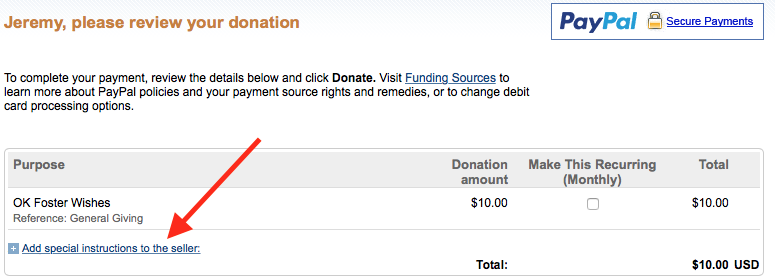

Read below for more details and follow me on Twitter for updates.
Motivation
I turned 32 on March 22. When young, birthdays are celebrated milestones on our march toward adulthood. As we age, they become celebrated evasions of our inevitable mortal end. Part of this natural transition is a shift in what we view as a gift. For a ten-year-old, that gift might be a new video game, while for a thirty-two-year-old, that gift might be an appreciation for everything they have. We shift from wanting to receive to wanting to give. I was raised with the idea that when people invest in you and your dreams, you should act in kind when in a position to do so. This may all sound hokey, but I believe it sincerely.
All of that is to say that I want to do something meaningful for my birthday and I need your help. I love jogging/walking because it gives me time to think. On one such jog in March, I thought, “Dude! What if you walked 32 miles for your 32nd birthday?” I replied to myself, “Look, you know I am game, but that’s not enough. Let’s make it cooler by raising money and awareness for an awesome cause.” I thought a little more and said, “Good idea, I should have thought of that. But who?” After another mile, it was an easy choice. OK Foster Wishes (OKFW).
Why OK Foster Wishes?
I spent the first 31 years of my life in Oklahoma. My wife, Larissa, and I moved to Utah last year in support of her fellowship. Although we live in Salt Lake City, our hearts remain in Oklahoma, which is why I thought of OKFW. Larissa is a board-certified pediatrician who focuses on child-abuse and neglect. While working in the Fostering Hope Clinic during her residency at the University of Oklahoma, Larissa became aware of OKFW through her mentor, Dr. Deborah Shropshire. When I learned about the Christmas Wishes program, I fell in love with their organization. For this program, OKFW coordinates with the Oklahoma DHS to receive foster children’s Christmas wish lists, which are then distributed to organizations and individuals to fulfill directly. OKFW does so much more, including coordinating volunteer efforts in the community, promoting the importance of art, celebrating teens who graduate high school while in foster care, and more.
Why are these efforts so important? According to the OKDHS 2015 Annual Report, there were almost 11,000 Oklahoma children in out-of-home care. Oklahoma Fosters reports that number may exceed 12,000 on any given day. Based on census estimates, that means around 12 in 1000 children in Oklahoma are in the OKDHS system. Sadly, this problem is apparently beyond the resources allocated by the state government, which makes organizations like OKFW so valuable. While some in the Oklahoma legislature prioritize irresponsible tax cuts and writing/defending unconstitutional laws, our children are left to suffer. For instance, recent budget cuts might end the Oklahoma Child Abuse Prevention Service.
Why give to OKFW? Because these children have a hard life through no fault of their own. If our elected leaders do not prioritize aiding their plight, then let’s do it on our own. I want to help organizations such as OKFW so that every child might have the same opportunities that my son does - to have a happy and healthy childhood filled with love and support.
The Goal
I want to raise at least $3200 for OK Foster Wishes. So, 32 miles for my 32nd birthday in an effort to raise $3200. I happen to think this is a modest goal. I believe we can crush that number.
Can I Do It?
Yes. You can trust that I will honor my commitment of 32 miles. Why? I completed the 2012 OKC Memorial Marathon with my wife through a combination of walking and jogging. This year, my wife and I signed up as a team for Run The Year. As of this writing, I have walked/jogged on 86 of 97 days for a total of 405 miles. More importantly, my friends and family will tell you that I am notorious for setting crazy goals and seeing them through. Life is short. 32 miles is even shorter.
Details
I plan to move my body 32 miles on Saturday, June 18. That will give me around 10 weeks to get in better shape and to collect donations.
I never concern myself with speed. My knees are getting old enough that running the whole time is unlikely. I prefer a deliberate walk and jog. I am not an athlete, so do not expect world record speeds. I estimate that it might take me 7-9 hours.
Donate
I need your help to make this happen. Every donation matters, no matter how small. I worked with OKFW to create a tracking code for our effort. Here is how to donate1:
- Click on this donate button


Please Share
I would appreciate if you would share a link to this page.
Keep Updated
OKFW will update me on the status of donations every two weeks. Follow me on Twitter to keep up with our progress.
Thank You
Your donation will help OKFW provide for and empower the more than 10,000 foster children in Oklahoma. I am very thankful for your support.
-
Note, this donation is tax-deductible if that is something that matters to you. ↩︎

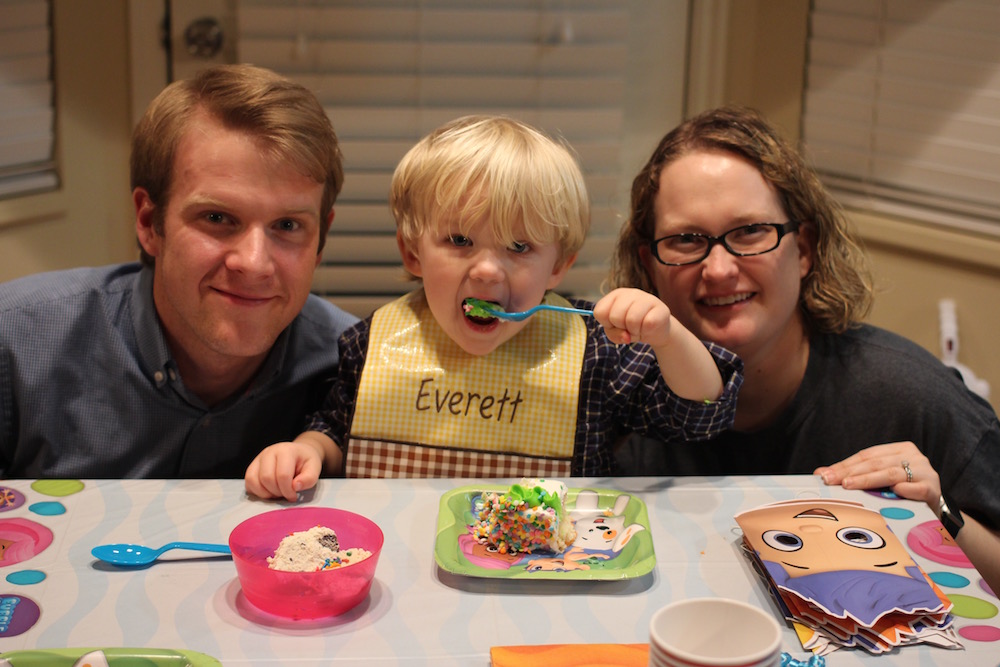
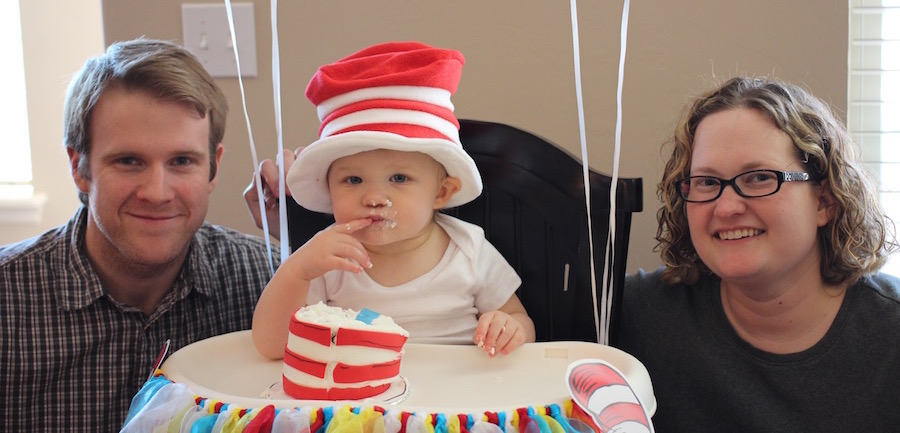
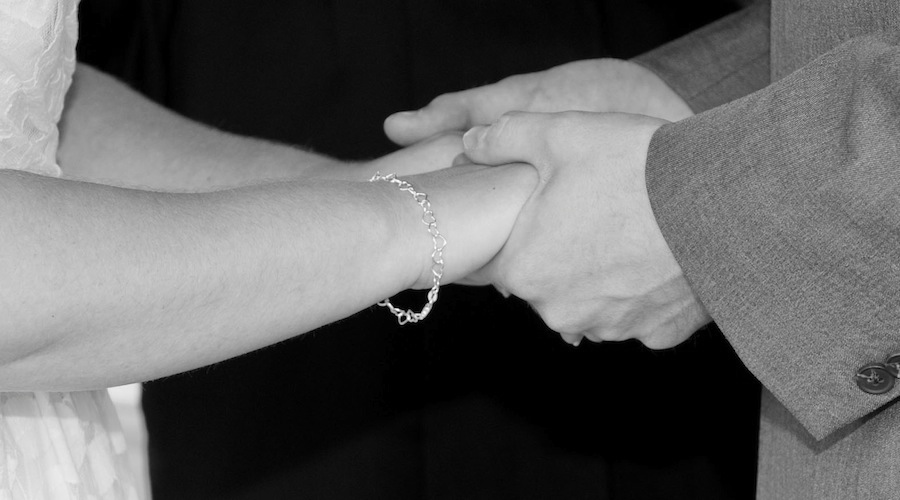 Holding hands during our wedding.
Holding hands during our wedding.
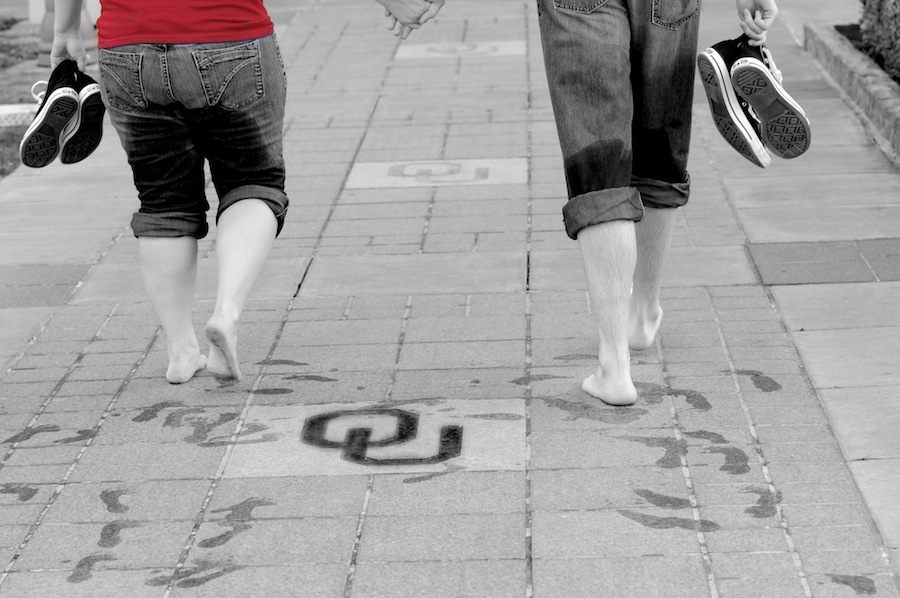
 Another pair of shoes.
Another pair of shoes.
 It's a boy.
It's a boy.
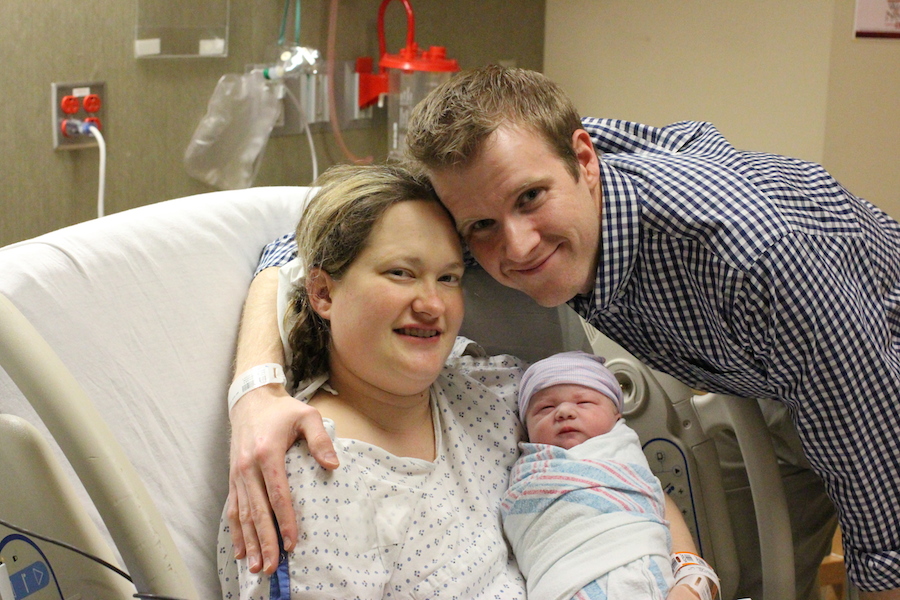 The new family.
The new family.
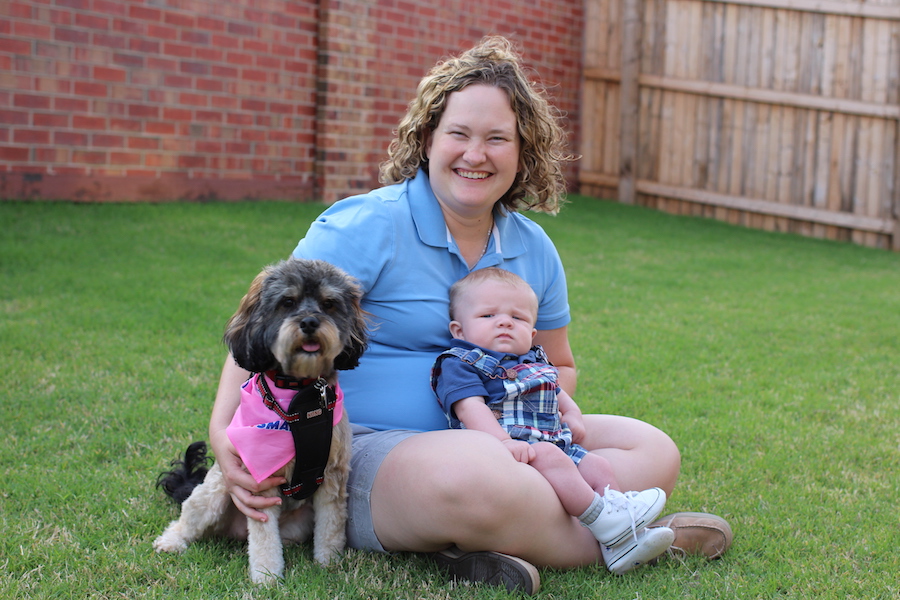 My world.
My world.